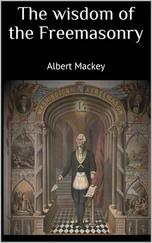“It’s unbelievable!” Safira suddenly exclaimed, as if she were in raptures over some miracle. “When I went out today, I was sure I was going to run into you. Isn’t that amazing?”
“I’m as delighted as you are,” Ossama answered, suspecting that the girl had traveled the entire city to find him. “Believe me, I bless the good fortune that set me on your path.”
By adopting this exaggeratedly warm tone, Ossama was simply hoping to establish an affectionate mood of honest camaraderie. Unfortunately, this mischievous cordiality, despite its excess, contributed to encouraging Safira’s modest quest for requited love. She lived in the Shoubra district with her mother in a rear basement apartment, in total isolation and poverty. To obtain the few piasters needed daily to sustain them in the chaos, Safira had nothing but the sole means offered to the proletariat living under governments that starve their people: she could continue seeking work that did not exist and die of malnutrition, or she could become a cut-rate prostitute — Safira was still too naïve to appreciate her body’s true worth. Ossama had slept with her on the evening they met, and in exchange she had asked for a sum so modest that this lack of venality in a prostitute had surprised and embarrassed him. Sexual relations that were all but free surely had to be hiding a trap; from then on he had refrained from renewing that episode of distraction, yet without denying the girl his friendship. She seemed to have attached herself to him like a drowning girl to a wisp of straw — Ossama considered himself in these cases even slighter than a wisp of straw — perhaps because she saw him as an outcast as unhappy as she. The young man had told her he was a thief and therefore, in his way, a pariah living on the fringes of society and this — in her ignorant mind — seemed the essential ingredient of a love affair. The fact that she was so easily resigned irritated Ossama and had a devastating effect on his spirits. So much bitterness, so much criticism had accumulated in her gaze that she stifled any desire he had to laugh. In truth, his compassion for the girl prevented him from viewing her through his usual prism of ridicule and condemned him to seeing a reality whose tragic aspect he normally actively denied. At times she would give herself over to the eagerness and teasing of girls her age; then, suddenly, she would become fierce, almost frantic, as if the crude images of her life suddenly loomed out of her memory in their basest details, casting a cloud over any brief moment of youthful enthusiasm.
All the while praising the girl’s attire, Ossama never took his eyes off the club’s entrance in the hope that his day would not end in emptiness and melancholy. This did not escape Safira, who started to get up, and, in a humble tone colored with suffering, said:
“You seem to be waiting for someone, so I’ll be going. Perhaps I’ll have the good fortune to see you again.”
“On your mother’s life, stay put. I’m not waiting for anyone.”
“Speaking of my mother, I should mention she’s very fond of you. Yesterday she told me she was praying to Allah for you to stay safe and never be arrested. Don’t you think that’s very kind of her?”
“Indeed! You mentioned me to your mother?”
“When she asked me where I had gotten these beautiful shoes” — Safira stretched out her legs and in the shade of the alley a magnificent pair of patent leather shoes with silver-colored metal buckles sparkled — “I couldn’t help confessing that you’d given them to me. You’re not mad at me, are you?”
“And you confessed that I was a thief, too?”
“Don’t be angry. You know, with the life she’s been leading since my father died, my mother’s gone a bit crazy. She can’t tell one job from another. I could just as well have said you were a banker; it’s all the same to her.”
“May Allah protect us! So why didn’t you tell her I was a banker?” Ossama asked in a calm, though slightly irritated voice.
“I don’t know,” Safira moaned, giving the impression she was holding back tears. “Maybe because I’m proud of you. You’re the only thief I know.”
Ossama didn’t bother to ask how many bankers she knew because he was well aware of the girl’s capacity for avoiding the obvious. The poor thing was going to lead him straight to the gallows if he didn’t quickly find a way to counteract his error in having revealed his line of work to her. Once again, compassion lay behind this unfortunate story; he had bought her the shoes the day she showed up in a tattered pair of espadrilles, touching his heart, and he had done so with the perverse idea that a pair of alluring shoes would allow Safira, in exchange for her amorous dealings, to ask for a sum of money equal to her refinement. He now regretted this over-generous act — he had expected some gratitude, not a threat to his career. Soon, thanks to this love-struck scatterbrain, the entire police force of the capital would be in on his act. Dressing elegantly to feign respectability would no longer be of any use to him if he didn’t manage to nip this bad publicity in the bud. Of course these bitter thoughts lasted only the span of a few sighs and in no way altered his conviction that nothing on this earth is tragic for an intelligent man. With his tolerant and joyful ethics, he was hardly predisposed to spite and he had to laugh at himself for thinking that telling the girl he was a thief would turn her away from him. Instead of alienating her, confiding in Safira had only made him more esteemed in her eyes, convinced as she was — no doubt by the example of the very wealthy characters popularized in the papers — that the profession of thief was synonymous with an elevated social standing. She followed Ossama ceaselessly, accumulating so-called “chance” encounters and giving him slyly languorous glances. Ossama had to admit that, for an expert in feminine ways, he had gone pathetically astray: any imbecile knew that women in love were impervious to all moral considerations. For a moment he silently made fun of himself, an ironic smile playing on his lips.
Safira could only interpret this smile as implicit criticism, and she tried to absolve herself by saying in a faintly trembling voice:
“I may have made a terrible mistake. Forgive me.”
“No, there’s nothing terrible about it. Don’t worry about me. At heart, your mother seems a very sensible person. Please thank her for her prayers. Who knows, I might need them.”
“Do you seriously mean that?”
“A person who makes no distinction between a banker and a thief cannot be classified as crazy. In fact, for evaluating mental health it’s the only criterion. There are no others.”
Ossama failed to divulge to the girl that this criterion was of his own devising. Even though Safira believed everything he told her, evaluating madness according to such a simplistic standard seemed insufficient for judging her mother’s mental state. “Are you sure?” she asked nervously.
“On my honor!” Ossama swore, placing his hand over his heart to prove the sincerity of his diagnosis.
“That makes me happy. I was afraid of seeing her go completely mad. You have warmed my heart.”
He could make out real relief on the girl’s face; a yearning to teach this exemplary neophyte his conception of the world welled up in him. But the impulse did not last long. Popularizing such a subversive concept for the benefit of a creature as hopeless as Safira seemed like offering pearls to a dying old woman.
“Tell me,” he began again in an amusing, conversational tone, “do you speak with your mother often?”
Ossama wanted primarily to keep the dialogue going and not give his companion the impression that she bored him. To be honest, the girl’s problems fascinated him against his will, as if all the injustices from which she suffered — all that she had inherited from her ancestors since the beginning of time — had their roots in distant lands and not in his immediate surroundings. Since he had ascended to thief heaven, he no longer paid any attention to the plaintive songs or moans of a fatalistic people who continued to believe in a mythic heavenly paradise. As he listened to Safira, he could hear the faded but enduring echo of the past when he, too, had been suffering in a world of triumphant falsehood. Although he couldn’t admit it to himself, he was hoping to hear her complain and lament, thereby opening his heart to the lost paths of his childhood with its trail of misfortune and cruelty — everything that in his new-found wisdom he had relegated to the ranks of insignificance. This vague nostalgic longing, however, did not distract him from his main purpose, which was to keep an eye on the club entrance, which waves of passersby sporadically blocked from his view. Until now he had only caught sight of servants in uniforms coming out one at a time to inhale the sweltering air of the street and cast reproachful glances at the never-ending stream of people strolling lazily beneath the sun, excluded from the club. No doubt the club members — the notables themselves — were in the process of whetting their appetites by swilling their alcohol of preference while fomenting new, shady deals. But lunchtime was drawing near and Ossama knew that none of these bastards would miss a meal; filling their bellies was the only work to which they devoted themselves with competence and honesty.
Читать дальше












